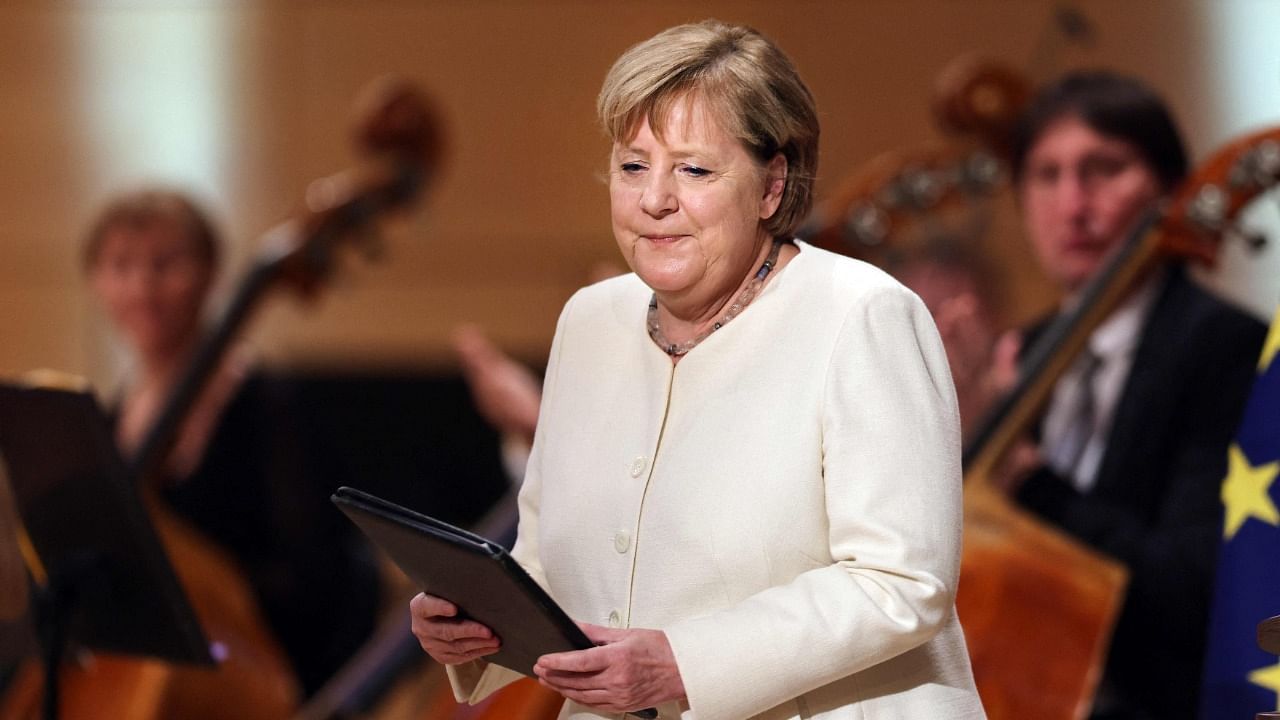
In the backdrop of the just-concluded German elections that marked the end of the Merkel-era, an article titled Politics will be poorer without Angela Merkel’s scientific approach was published in the renowned science journal Nature. A scientific journal of this stature paying tribute to a retiring leader is not quite common, but not surprising. For it’s not quite often that someone having a sound scientific career and a PhD in quantum chemistry reaches the helm of the largest economy of Europe. “The departing German chancellor’s support for science and rigour in policymaking has proved transformative – except on climate change,” the Nature article opined.
Merkel, the undisputed queen of Europe, has led Germany for 16 long years at a stretch, through a global economic crash, a migrant crisis, and most recently a ravaging pandemic. While the first and the last of these three were mostly driven by her scientific conviction, the wave of refugees in 2015 – mostly from Syria – has largely framed her legacy. While most of the world leaders were afraid of the massive human infiltration during the 2015 Syrian crisis, Merkel’s statement “Wir schaffen das” (“We can do it”) became a part of folklore, for sure. Merkel’s response and leadership performance during the refugee crisis were largely seen through the lens of the concept of ‘conviction leadership’.
Ever since 2018, when Merkel has announced that she would not contest for the chancellorship in the 2021 elections and also announced to stand down as the leader of her Christian Democratic Union party, many people had preferred to consider her a lame duck. However, the Covid-19 pandemic made her popularity surging.
Due to her profound scientific background, Merkel could easily emerge beyond a commander-in-chief to become a scientist-in-chief of her country during the pandemic.
“Merkel brought compassion and an insistence – unusual among politicians, even in the time of Covid-19 – that decision-making benefits from evidence,” Nature acknowledged. At a press conference in April 2020, Angela Merkel used her science background to deftly explain how the coronavirus spreads so quickly. She explained the ‘reproduction number’, R, and stated that a value of 1.1 would overwhelm the German health system by October, 1.2 by July, and 1.3 by June. She clearly outlined to Germans that ‘R’ must remain below 1. Her approach to evidence-based lockdown certainly enhanced her popularity in Germany.
Chancellor Merkel prioritised regular ‘innovation’ talks with working scientists and research managers, in up-and-coming fields such as hydrogen technology, quantum computing, and artificial intelligence.
These drove initiatives such as a €2 billion program in quantum computing and related technologies and a 3-5% increase in research and university funding every year since 2006. These pay dividends through innovations during crises which were evident in Germany’s fight against Covid. Not to ignore that German researchers could invent the first diagnostic test for Covid-19 and their success in mRNA technology-based vaccines is also noteworthy.
However, science and politics are different – Merkel knows that well. Politics and the responsibilities of holding public offices fall beyond the domain of science. However, induction of scientific views into politics was natural for someone like Merkel with her scientific background. It’s never easy though.
To her utmost credit, Merkel could balance it in the finest possible way. In her 2010 speech in London on being awarded the Royal Society’s King Charles II medal, Angela Merkel said: “...when I made the transition from life as a physicist and researcher to life as a politician, perhaps the biggest change I noticed was this: if one says the same thing twice in science it counts for nothing, whereas in politics it is an absolute requirement that one should repeat the same thing at least ten times over until a sufficient proportion of the population has really taken it in.” She has turned German politics into a discussion about policy rather than politics
“Merkel’s approach to politics differs incredibly from her contemporaries as she focuses on research and evidence-based thinking, a skill developed in the scientific world,” the Nature article applauded. In her Royal Society speech, Markel said: “...in science the world is always in a state of flux, there are always new challenges.” Yes, she could face the challenges by uttering: “Wir schaffen das”. A combination of science and politics, blended with conviction – that’s the legacy of Angela Merkel.
(The writer is a professor of Statistics, Indian Statistical Institute, Kolkata)